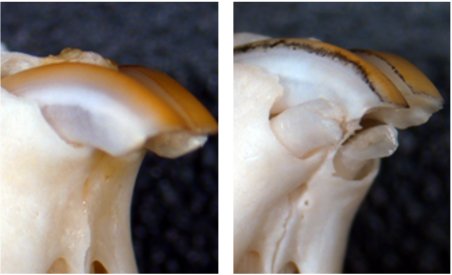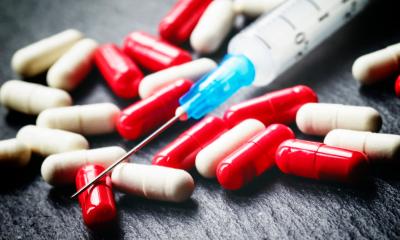Image source: Unsplash/Juan Carlos Rivera
News • Here comes the tooth fairy
New drug shows promise for regenerating lost teeth
A new study by scientists at Kyoto University and the University of Fukui may offer hope for adults who have lost their teeth.
The team reports that an antibody for one gene - uterine sensitization associated gene-1 or USAG-1 - can stimulate tooth growth in mice suffering from tooth agenesis, a congenital condition. The paper was published in Science Advances.
Our study shows that cell-free molecular therapy is effective for a wide range of congenital tooth agenesis
Manabu Sugai
Although the normal adult mouth has 32 teeth, about 1% of the population has more or fewer due to congenital conditions. Scientists have explored the genetic causes for cases having too many teeth as clues for regenerating teeth in adults. According to Katsu Takahashi, one of the lead authors of the study and a senior lecturer at the Kyoto University Graduate School of Medicine, the fundamental molecules responsible for tooth development have already been identified. "The morphogenesis of individual teeth depends on the interactions of several molecules including BMP, or bone morphogenetic protein, and Wnt signaling," says Takahashi.
BMP and Wnt are involved in much more than tooth development. They modulate the growth of multiple organs and tissues well before the human body is even the size of a raisin. Consequently, drugs that directly affect their activity are commonly avoided, since side effects could affect the entire body. Guessing that targeting the factors that antagonize BMP and Wnt specifically in tooth development could be safer, the team considered the gene USAG-1. "We knew that suppressing USAG-1 benefits tooth growth. What we did not know was whether it would be enough," adds Takahashi.

Image source: Kyoto University/Katsu Takahashi
The scientists therefore investigated the effects of several monoclonal antibodies for USAG-1. Monoclonal antibodies are commonly used to treat cancers, arthritis, and vaccine development. USAG-1 interacts with both BMP and Wnt. As a result, several of the antibodies led to poor birth and survival rates of the mice, affirming the importance of both BMP and Wnt on whole body growth. One promising antibody, however, disrupted the interaction of USAG-1 with BMP only.
Experiments with this antibody revealed that BMP signaling is essential for determining the number of teeth in mice. Moreover, a single administration was enough to generate a whole tooth. Subsequent experiments showed the same benefits in ferrets. "Ferrets are diphyodont animals with similar dental patterns to humans. Our next plan is to test the antibodies on other animals such as pigs and dogs," explains Takahashi.
The study is the first to show the benefits of monoclonal antibodies on tooth regeneration and provides a new therapeutic framework for a clinical problem that can currently only be resolved with implants and other artificial measures. "Conventional tissue engineering is not suitable for tooth regeneration. Our study shows that cell-free molecular therapy is effective for a wide range of congenital tooth agenesis," concludes Manabu Sugai of the University of Fukui, another author of the study.
Source: Kyoto University
06.04.2021










